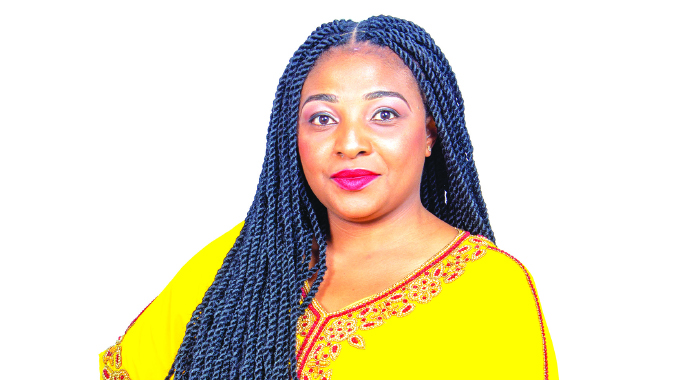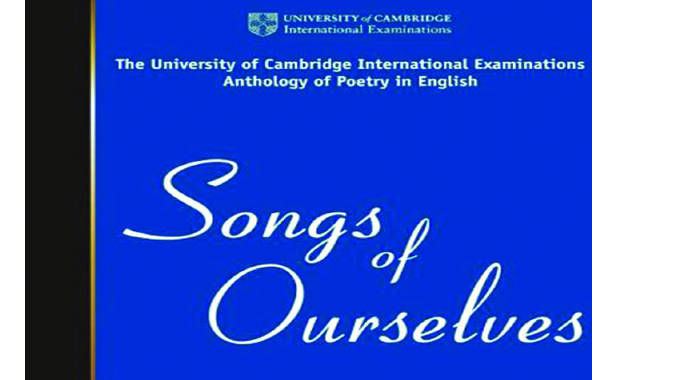Culture of silence in domestic violence and abuse a killer

Tendai H Manzvanzvike – Head, Zimpapers Knowledge Centre
SHE has a striking resemblance to the “Princess of Afrika” Yvonne Chaka Chaka, but US-based Comfort Dondo like, Chaka Chaka ,is also flying Zimbabwe’s flag high in the Diaspora. With her recently published book, Facing the Giants: A Journey to Freedom from Domestic Abuse, published by Diamond Publishing in the UK, and other works. The 37-year-old mother of three laughs and modestly says, “I have heard that before … it’s a compliment, thank you!”
Comfort is a woman made of steel and beneath the confidence, she conceals scars and that she has. Countdown to commemorating 16 Days of Activism Against Gender-Based Violence has begun, while October in the United States is Domestic Awareness Month, so Tendai Manzvanzvike (TM) spoke with Comfort (CD) on the issues.
***
TM: Who are the giants you wrote about in your book. In short, what are the issues you touch on in the book?
CD: I am a survivor of both child sexual abuse and domestic violence. As someone who witnessed domestic violence growing up, I also found myself in the same vicious cycle as a child.
But like I say in the introduction, I survived, though not without scars. My scars tell a story. They are a reminder of times when life tried to break me, but failed. They are the markings of where the structure of my character was carved.
And, giants are those silent pains and trauma-induced issues that many in our society do not want to talk about, including mental wellness or lack of it; struggles that many women face especially the trauma of being violated as a child and keeping it silent into adulthood.
Living in the Diaspora is another giant – navigating racist systems and losing time from family in Zimbabwe because we are abroad. Giants to me are those problems we may avoid facing because we’re too overwhelmed or it may be too painful.
TM: And what would you say are the human, social and psychological costs of domestic violence?
CD: According to the Centres for Disease Control and Prevention (CDC), the financial impact of domestic violence range from individual to societal. In fact, they say the lifetime economic cost associated with medical services, lost productivity from paid work, criminal justice, and other costs are monumental for victims — women and men alike.
The psychological costs of domestic violence are fatal and to me very dangerous because unlike visible diseases, mental health wellness is often ignored and stigmatised, and for those who are raised in violent homes or are abused sexually as children, it costs them mentally.
Our therapists diagnosed a lot of survivors and victims of mental health conditions like post-traumatic stress disorder (PTSD); depression and anxiety, and even substance abuse. Suffering from some of these directly impacts survivors of violence and how they navigate their world.
TM: But who is Comfort Dondo and why is she living in the US?
CD: I am a daughter of Zimbabwe; a philanthropist; entrepreneur and mother of three beautiful children. I am an avid public policy analyst and advocate for historically marginalised and under-served members of society.
I am living in the United States because I came here when I was 17 years old and pursued my higher education. I returned back home to Zimbabwe to seek work in 2008, but there were no opportunities for me so, I returned back to the States where there seemed to be opportunities for me.
TM: Your book targets women and men that are “oppressed, rejected, abandoned, abused, violated (and) alone.” Can you unpack it for us!
CD: It took me a little over five years to write this book, because I wanted it to speak from my heart to the hearts of those people like myself. I would like to acknowledge my book coach and publishing strategist — Epi Mabika, based in the UK who helped me birth this book with excellence and has been a tremendous support throughout.
I was raised humbly in Mabvuku, overcame barriers by facing them one giant at a time, and in this book I go on my personal journey to finding healing. Although domestic violence is the main giant I tackle in this book, I also provide tools on how to deal with issues like family dynamics, overcoming anxiety fears; but most importantly how to move from the valley to the mountain-top.
I am vulnerable in this book and invite the world to mine, because I believe if a girl like me from Chizhanje, Mabvuku could make it to the top, you can too.
I also wanted the world to know how excellent Zimbabweans are, despite the narratives that are shared of our country. In this book, I try to share a balanced narrative of Zimbabwe and Africa not just the one side of lack, poverty and troubles. I also share the wealth of our culture, the abundance of community and richness of Ubuntu.
Lastly, I provide a manual and journal for free for my readers to engage in writing down their own narratives and begin a healing journey to abundance.
TM: You write about victimhood and survival, what is the difference between victim and survivor?
CD: In my own words, victimhood is the initial phase when one faces abuse. It can even be self-abuse, for instance when you are a prisoner of your own bad habits. In this phase you are powerless or at least you have not realised the tools to overcome the source of abuse.
A survivor on the other hand, refers to a person who has passed the first phase. This is when one has gotten the power to name the abuser and proactively fighting back. In my work, it is when a woman finds the courage to walk out of an abusive relationship and seek counselling.
A survivor on the hand is when a former victim finds their voice back and use it to empower fellow victims. None of these terms are linear because no individual journey is the same. Some women stay in the victim phase a lot longer than others and it takes tools, support and resources to bring them to the second phase of survivor and abundant healing.
TM: Soon, the 16 Days of Activism Against gender-based violence will be memorialised. How do you see your book helping? Is enough also being done in terms of awareness?
CD: This book will be a conversation starter, for in our culture it is taboo to openly talk about some of the subject matters like childhood sexual abuse or confronting domestic violence that impacted you as a child. Most of the time we say “musafukura hapwa”, a Shona saying that translates to: “do not wash your dirty laundry in public”. It is this culture and other norms that have continued to perpetuate violence against women, and at times men too.
If possible, I would want to see this book included in curriculum from young children so that we can open these conversations and change the culture of silence around these topics.
For me, this book is a gift from my younger self to all young girls who may be afraid; or grown women whose younger selves are still holding onto a secret that traumatised them.
Awareness? No not all, we have not even scratched the surface. Not enough is being done and I want to call on our President and the leadership to pour resources into ending violence against women.
“Musha Mukadzi!” If our women and girls are protected and healed, our nation will as well. I would love to see what is happening in Rwanda here in Zimbabwe, then we are ready to come home and do some work. We’ve been working abroad, and it’s time for us to return home and do this work.
TM: The Covid-19 pandemic, lockdowns and other mandates are their second year. How has Covid-19 aided and abated domestic violence and abuse?
CD: Covid-19 has definitely caused an increase in domestic violence because of many factors — couples staying indoors longer together, stressors caused by loss of income due to the pandemic. It has exacerbated the violence.
TM: You’re a mother, a gender activist, you run your own organisation and are a policy influencer. Do you work with your Zimbabwean counterparts? What lessons have you been able to draw from each other?
CD: I work very closely with my Zimbabwean counterparts including those in corporate Zimbabwe. My friend and sister like Savanna Madamombe, who is also doing healing work for young people addicted to drugs is a great example.
We have a foundation that provides support for widows and orphans mostly on big holidays like Christmas and we are working on expanding the work and capacity.
The main lessons I have learnt from working with programmes on the ground is that if you want to go fast you can go alone, but for further impact, you must go together.
TM: You say you are a policy influencer. What policies have you managed to influence?
CD: I will just cite a few — the Homes for all policy, that was passed to prioritise funding for ending homelessness. Currently I’m one of five organisations advocating for the distribution of $161 million to be considered for organisations led by and serving African immigrant communities. This policy is called Communities First and I am working with Mayor Carter on this.
I’m also one of the women leaders sitting on Attorney General Keith Ellison’s Women’s Economic Taskforce. We are advocating for the reopening of the office on the Economic Security of Women, which was closed when President Donald Trump was in Office.
Lastly, I’m involved in three coalitions on ending homelessness, sexual assault and gender based violence and I also consult and contribute towards many policies that impact women and girls.
I am also involved with the United Nations as a Civil Organizations, we weigh in on youth work and prevention work on ending violence.
TM: You are a busy woman considering that you’re also a PhD student. Despite all the work, there are denialists, who will make excuses for what is done to them? Why and how best can these people be assisted
CD: As a childhood survivor who had to grow up by age nine, I will tell those who may be feeling victimised or powerless that it starts with you. You must realise that we are the rescue we are waiting on. Everyone is prioritising their primary needs, and once you understand that, getting support must become secondary in your mind-set.
I’m a testimony, self-made multiple businesses owner and philanthropist; just raised my first 100 plus million dollars on a capital campaign I’m on. All these accomplishments were not handed to me on a silver platter. I worked very hard to walk away from abuse, toxic spaces and healed.
It was not easy or linear but I knew that I was the solution to my problems. Of course, I got support but again that was secondary.
Start with the journal exercise in my book. It changed my life from lack to abundance. I want to say this loudly – if you are waiting for someone to help you accomplish your dreams, know that you may wait in vain. You’re the captain of your ship. Get out and get up and do the hard work.
I am happy to coach and/or inspire those needing to heal and can be found on social media platforms like LinkedIn and Facebook as well as our website – www.phumulani.org. My Instagram handle is @comfortdondo.
TM: Any chances of coming to resettle in Zimbabwe?
CD: My heart is in Zimbabwe always, and if the right opportunities present themselves, I’d be back home to work and serve my home country. There is no place like home, which is why I come home with my children to share my culture and family with them. I also know that Zimbabwe is one of the most beautiful countries in the world and any opportunities to return home and settle, I would love to come home.








Comments